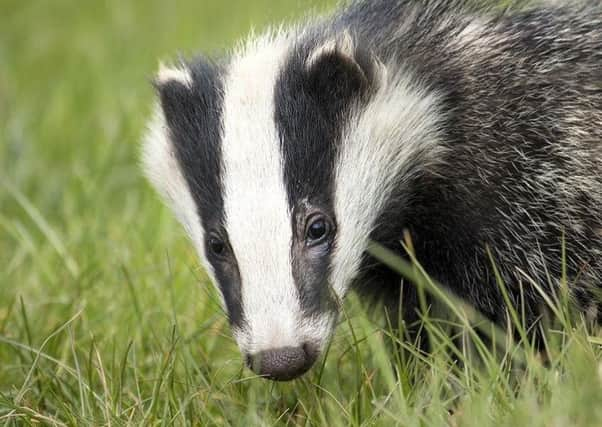'˜Farmers have bigger bovine TB role than badger culls', Godfray review claims


An independent review of the Government’s bovine TB (bTB) eradication strategy, which includes controversial culls of badgers in 32 areas of the country, including Cumbria, has been published today.
Measures to tackle the disease include cattle testing and movement controls, improving “biosecurity” or protective measures to prevent disease spread on farms.
Advertisement
Hide AdAdvertisement
Hide AdThe review found however that poor take-up of relatively cheap biosecurity measures on farms and trading in high-risk livestock is hampering disease control.
The review panel warns against an “over-emphasis” on the role of wildlife in spreading TB to cattle, suggesting that the evidence on badger culling showed a “real effect but a modest effect” as part of the strategy to tackle the disease and that periodic culling could be a better approach.
Decisions over culling badgers, which can cut incidence of TB in herds by around 15 per cent, should be informed by science but it is a judgment call for ministers, the review states.
Sir Charles Godfray, a professor at Oxford University who chaired the review, said some farmers were doing “tremendous things” to halt the spread of bTB, but there was “fatalism” over the disease in other parts of the industry.
Advertisement
Hide AdAdvertisement
Hide AdSir Charles said: “We realise that wildlife does have a role in this disease, but it’s wrong to put all the blame on wildlife and to use this as an excuse to not make hard decisions in industry, which is going to cost the industry money.”
Asked to quantify the contribution to disease spread from badgers and the farming industry, through cattle to cattle infection, Sir Charles added: “If I was asked to say more one than the other, I would say definitely on the cattle to cattle side.
“We do think there is a huge amount that can be done within the livestock industry.”
Prof Michael Winter, of Exeter University, said biosecurity measures included installing buffers between farms and injecting slurry into the ground rather than spreading it to prevent surface contamination, and ensuring contractors clean gear properly between farms.
Advertisement
Hide AdAdvertisement
Hide AdIt is important not to “wave a stick” at farmers but to work with them to bring in such measures, Prof Winter said.
The review also warned 1.7 million cattle were moved within and between areas with a different level of risk in 2016, including substantial numbers from higher to lower risk areas, which could be an important source of infection.
Compensation for slaughtered cattle could be adjusted to prevent risky trading of livestock and the review calls for more effective testing of cattle in high risk areas.
Sir Charles added: “We desperately need more evidence on the efficacy of vaccinations.”
Advertisement
Hide AdAdvertisement
Hide AdFarming Minister George Eustice said the review would help inform next steps in the strategy to achieve TB free status for England by 2038.
“As a Government we are committed to eradicating bTB and have always been clear that there is no single measure for tackling it,” Mr Eustice said.
